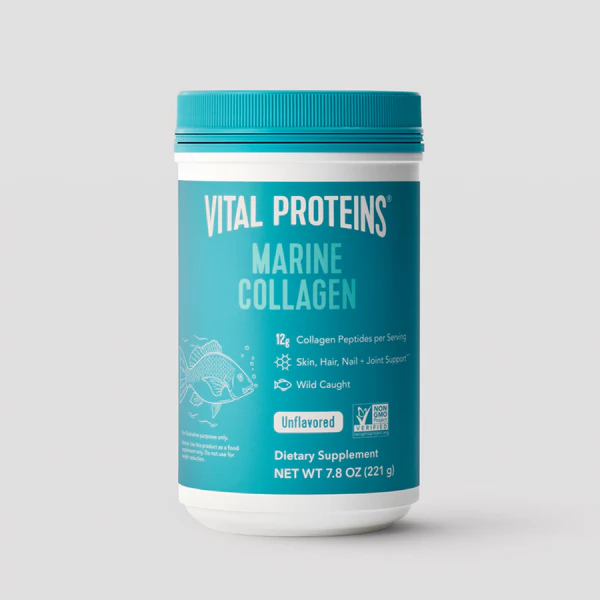Marine collagen is a type of protein derived from fish skin. Many people are turning to this supplement for its potential benefits, which include promoting healthier skin, improving joint function, and supporting gut health. Marine collagen may help delay signs of aging and enhance overall skin elasticity.
Unlike bovine collagen, marine collagen is known for its higher absorption rate, making it a popular choice among those seeking effective supplementation. Studies suggest that it plays a role in increasing collagen production in the body, which is essential for maintaining skin and joint health. With various forms available, such as powders and capsules, it is increasingly easy for individuals to incorporate this supplement into their daily routines.
As awareness of the health benefits of marine collagen grows, so does interest in its sources and types. Readers will explore what marine collagen can do for them and how to choose the right product for their needs.
Understanding Marine Collagen
Marine collagen is a popular supplement known for its potential health benefits. It is derived from marine sources and offers a unique composition that differs from other types of collagen.
Definition and Origin
Marine collagen is a type of protein that comes mainly from fish skin and scales. It is often used in beauty products and dietary supplements. This collagen is known for its high bioavailability, meaning the body can absorb it more easily than some other forms.
The use of marine collagen has grown as people seek natural sources to improve skin health, joint support, and overall wellness. It is an effective alternative to other collagen types, especially for those who prefer non-bovine sources.
Types and Sources
The most common type of marine collagen is Type I, which is abundant in skin, tendons, and ligaments. Marine collagen is usually sourced from:
- Fish scales: Often harvested from species like cod and tilapia.
- Fish skin: Provides a rich supply of collagen.
- Marine invertebrates: These include organisms like jellyfish and shellfish, which are also high in collagen.
Each source may vary in its collagen content and structure. The use of marine collagen can promote hydration and elasticity in skin while supporting healthy joints and bones.
Comparison With Other Collagen Types
Marine collagen differs from other collagen types, such as bovine collagen, in its amino acid profile and absorption rates.
- Bovine Collagen: Contains Type I and III collagen, primarily found in skin, muscles, and blood vessels. It supports skin elasticity and firmness.
- Marine Collagen: Primarily contains Type I collagen, beneficial for skin health and joint support.
Marine collagen may offer faster absorption due to its smaller peptide size, making it easier for the body to utilize. This makes it a popular choice for individuals seeking specific benefits for skin and joint health.
Health Benefits of Marine Collagen
Marine collagen offers several health benefits, particularly for skin, joints, and digestive health. It is prized for its unique properties that may enhance overall well-being.
Skin Health and Anti-Aging Properties
Marine collagen can improve skin health by increasing hydration and elasticity. It may help reduce wrinkles and fine lines, making skin appear more youthful. This type of collagen provides essential amino acids that support skin structure.
Regular intake may lead to a noticeable difference in skin texture. Some studies suggest that marine collagen can enhance the skin’s natural glow. When applied topically or taken as a supplement, it may promote collagen synthesis, further supporting skin health.
Joint and Bone Support
Marine collagen may provide significant support for joints and bones. It contains specific amino acids that contribute to the maintenance of cartilage. This can help reduce joint pain, particularly for those suffering from arthritis.
Studies have shown that marine collagen can improve joint flexibility and reduce inflammation. It also plays a role in maintaining bone density, which is vital as people age. Incorporating marine collagen in the diet may lead to better overall joint health and mobility.
Digestive Health Promoting Effects
Marine collagen supports digestive health by strengthening the gut lining. It may help in healing the gut and reducing inflammation. This can benefit individuals with digestive disorders, such as leaky gut syndrome.
The amino acids in marine collagen, particularly glutamine, are essential for gut health. Regular consumption might improve nutrient absorption and overall gut function. Including marine collagen as part of a balanced diet can thus contribute to digestive wellness and comfort.
Marine Collagen in Industry
Marine collagen is gaining popularity across various industries due to its beneficial properties. It is making significant impacts in nutraceutical and cosmetic sectors, providing solutions that promote health and improve skin appearance.
Nutraceutical Applications
Marine collagen is widely used in the nutraceutical industry. It is often marketed as a dietary supplement aimed at improving joint health and enhancing skin elasticity.
- Health Benefits:
- Supports joint function.
- Aids in skin hydration and elasticity.
Research has shown that marine collagen can promote the production of collagen in the body, aiding in skin regeneration. The bioavailability of marine collagen is also noted to be higher than other sources, making it more effective for natural health products.
Many companies offer marine collagen in powder form, which can be easily added to beverages and food. This convenience has increased its appeal among health-conscious consumers.
Cosmetic and Skin Care Products
In the cosmetic industry, marine collagen is integral to many skin care products.
- Key Uses:
- Found in anti-aging creams.
- Common in serums for skin hydration.
Marine collagen provides antioxidant effects that protect skin cells from damage. It is known for enhancing skin re-epithelization and promoting faster wound healing rates. As a result, products containing marine collagen help improve skin elasticity and reduce wrinkles.
Several brands are incorporating marine collagen into their formulations, reflecting a growing trend toward sustainable and effective beauty products. Its ability to meet the demands of modern consumers makes it a valuable ingredient in cosmetics.






